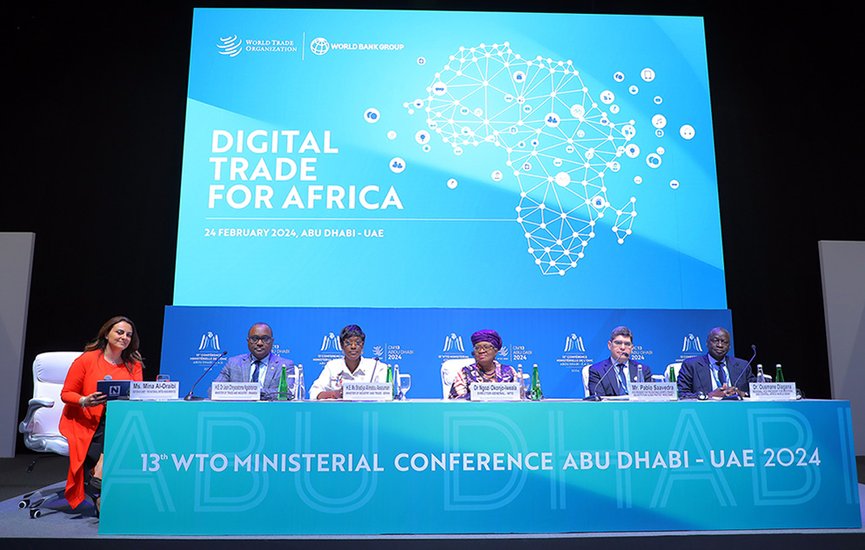Kampala | Africa has made strides in advancing digital trade, but regulatory and implementation barriers continue to hinder the shift to paperless commerce, according to a joint report by the World Trade Organization (WTO) and the World Bank.
The two institutions conducted digital trade reviews in six African countries Rwanda, Kenya, Benin, Côte d’Ivoire, Ghana, and Nigeria to identify policy gaps and opportunities for improvement. While the reviews found that most of these nations have “substantial frameworks in place,” they noted that adoption remains slow due to “a lack of secondary legislation or overly rigid frameworks.”
The findings come from the pilot phase of the Digital Trade for Africa initiative, launched in 2023 to help African economies harness digital technologies to expand exports, reach new markets, and support women and small businesses.
At a policy dialogue held on September 25, experts from the WTO and World Bank secretariats presented key insights from the country reports. Despite a 13% year-on-year rise in Africa’s exports of digitally delivered services in 2024, regulatory shortcomings remain a major constraint.
According to the World Bank’s regulatory gap analysis, most of the pilot countries have adopted basic frameworks for electronic documents and digital signatures aligned with UNCITRAL model laws. However, incomplete implementation and rigid e-signature systems have limited their use in commercial transactions.
E-transactions regulations often require secondary legislation to define which public agencies or private entities can issue digital signatures a step still missing in many countries. For example, Rwanda’s digital signature framework applies primarily to government services, with procedures that are more restrictive than needed for private-sector use.
More advanced digital trade measures, such as electronic invoicing and the recognition of electronic transferable records, are also largely absent. Martín Molinuevo, Senior Counsel for the World Bank’s trade team, acknowledged “substantial progress” in areas like e-contracts and e-signatures but pointed to “weaker frameworks for cross-border data flows.”
Connectivity indicators, meanwhile, show gradual improvement. In Benin and Rwanda, access to electricity exceeded the Sub-Saharan African average in 2022, while Côte d’Ivoire, Ghana, and Kenya achieved rates above 70% in 2023. However, 5G coverage remains limited, with Nigeria leading at just 11.8%, compared to the global average of 44.5%.
Despite these challenges, digitally delivered services continue to grow. Ghana emerged as a frontrunner, recording US$6.2 billion in exports of such services in 2024.
WTO Deputy Director-General Xiangchen Zhang said the next phase of the Digital Trade for Africa project will focus on tailored technical assistance for each pilot country. “Our goal is to help these nations leverage global best practices and mobilize donor support to strengthen their laws and regulations,” he said.
A separate WTO report also projects that artificial intelligence could increase the value of cross-border trade in goods and services by nearly 40% by 2040. However, it cautions that unequal access to infrastructure, digital skills, and hardware could widen the global digital divide if not addressed.
